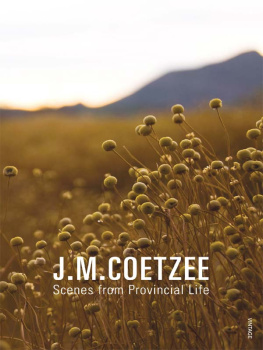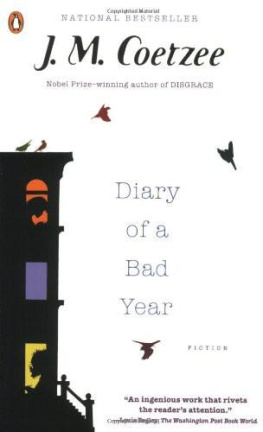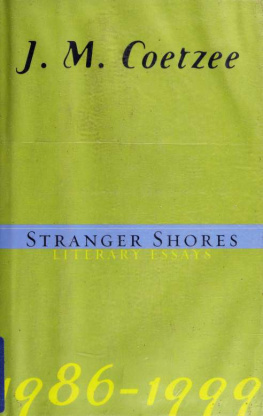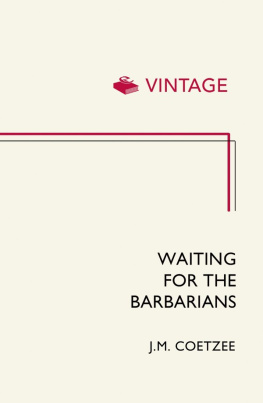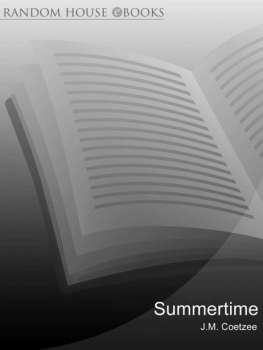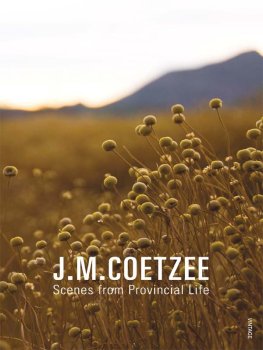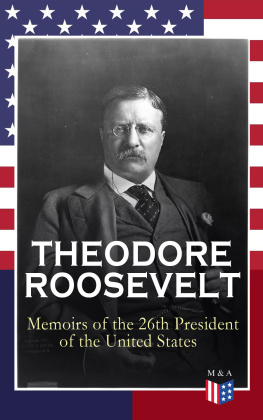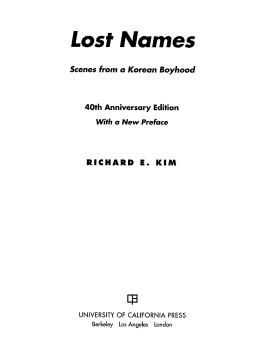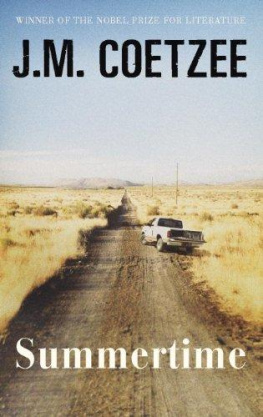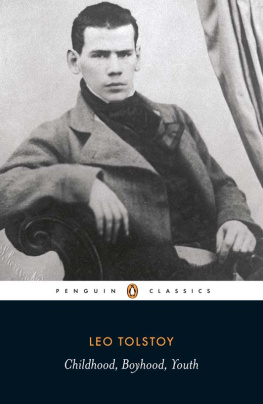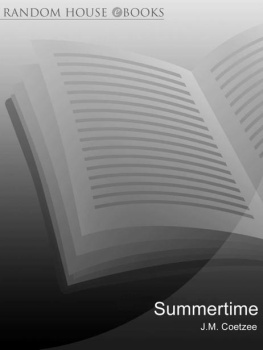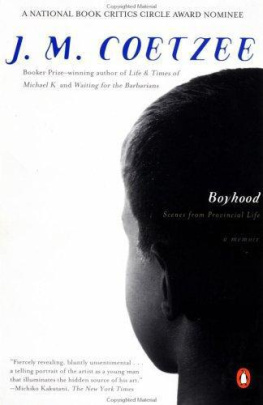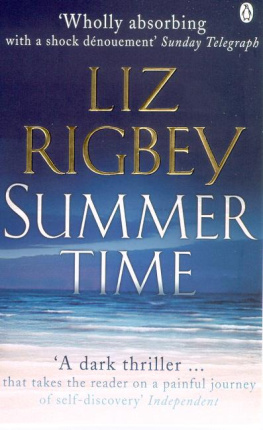Also by J.M. Coetzee
In memoriam D.K.C.
One
They live on a housing estate outside the town of Worcester, between the railway line and the National Road. The streets of the estate have tree-names but no trees yet. Their address is No. 12 Poplar Avenue. All the houses on the estate are new and identical. They are set in large plots of red clay earth where nothing grows, separated by wire fences. In each backyard stands a small block consisting of a room and a lavatory. Though they have no servant, they refer to these as the servants room and the servants lavatory. They use the servants room to store things in: newspapers, empty bottles, a broken chair, an old coir mattress.
At the bottom of the yard they put up a poultry-run and install three hens, which are supposed to lay eggs for them. But the hens do not flourish. Rainwater, unable to seep away in the clay, stands in pools in the yard. The poultry-run turns into an evil-smelling morass. The hens develop gross swellings on their legs, like elephant-skin. Sickly and cross, they cease to lay. His mother consults her sister in Stellenbosch, who says they will return to laying only after the horny shells under their tongues have been cut out. So one after another his mother takes the hens between her knees, presses on their jowls till they open their beaks, and with the point of a paring-knife picks at their tongues. The hens shriek and struggle, their eyes bulging. He shudders and turns away. He thinks of his mother slapping stewing steak down on the kitchen counter and cutting it into cubes; he thinks of her bloody fingers.
The nearest shops are a mile away along a bleak eucalyptus-lined road. Trapped in this box of a house on the housing estate, there is nothing for his mother to do all day but sweep and tidy. Every time the wind blows, a fine ochre clay-dust whirls in under the doors, seeps through the cracks in the window frames, under the eaves, through the joints of the ceiling. After a daylong storm the dust lies piled inches high against the front wall.
They buy a vacuum cleaner. Every morning his mother trails the vacuum cleaner from room to room, sucking up the dust into the roaring belly on which a smiling red goblin leaps as if over a hurdle. A goblin: why?
He plays with the vacuum cleaner, tearing up paper and watching the strips fly up the pipe like leaves in the wind. He holds the pipe over a trail of ants, sucking them up to their death.
There are ants in Worcester, flies, plagues of fleas. Worcester is only ninety miles from Cape Town, yet everything is worse here. He has a ring of fleabites above his socks, and scabs where he has scratched. Some nights he cannot sleep for the itching. He does not see why they ever had to leave Cape Town.
His mother is restless too. I wish I had a horse, she says. Then at least I could go riding in the veld. A horse! says his father: Do you want to be Lady Godiva?
She does not buy a horse. Instead, without warning, she buys a bicycle, a womans model, second-hand, painted black. It is so huge and heavy that, when he experiments with it in the yard, he cannot turn the pedals.
She does not know how to ride a bicycle; perhaps she does not know how to ride a horse either. She bought the bicycle thinking that riding it would be a simple matter. Now she can find no one to teach her.
His father cannot hide his glee. Women do not ride bicycles, he says. His mother remains defiant. I will not be a prisoner in this house, she says. I will be free.
At first he had thought it splendid that his mother should have her own bicycle. He had even pictured the three of them riding together down Poplar Avenue, she and he and his brother. But now, as he listens to his fathers jokes, which his mother can meet only with dogged silence, he begins to waver. Women dont ride bicycles: what if his father is right? If his mother can find no one willing to teach her, if no other housewife in Reunion Park has a bicycle, then perhaps women are indeed not supposed to ride bicycles.

